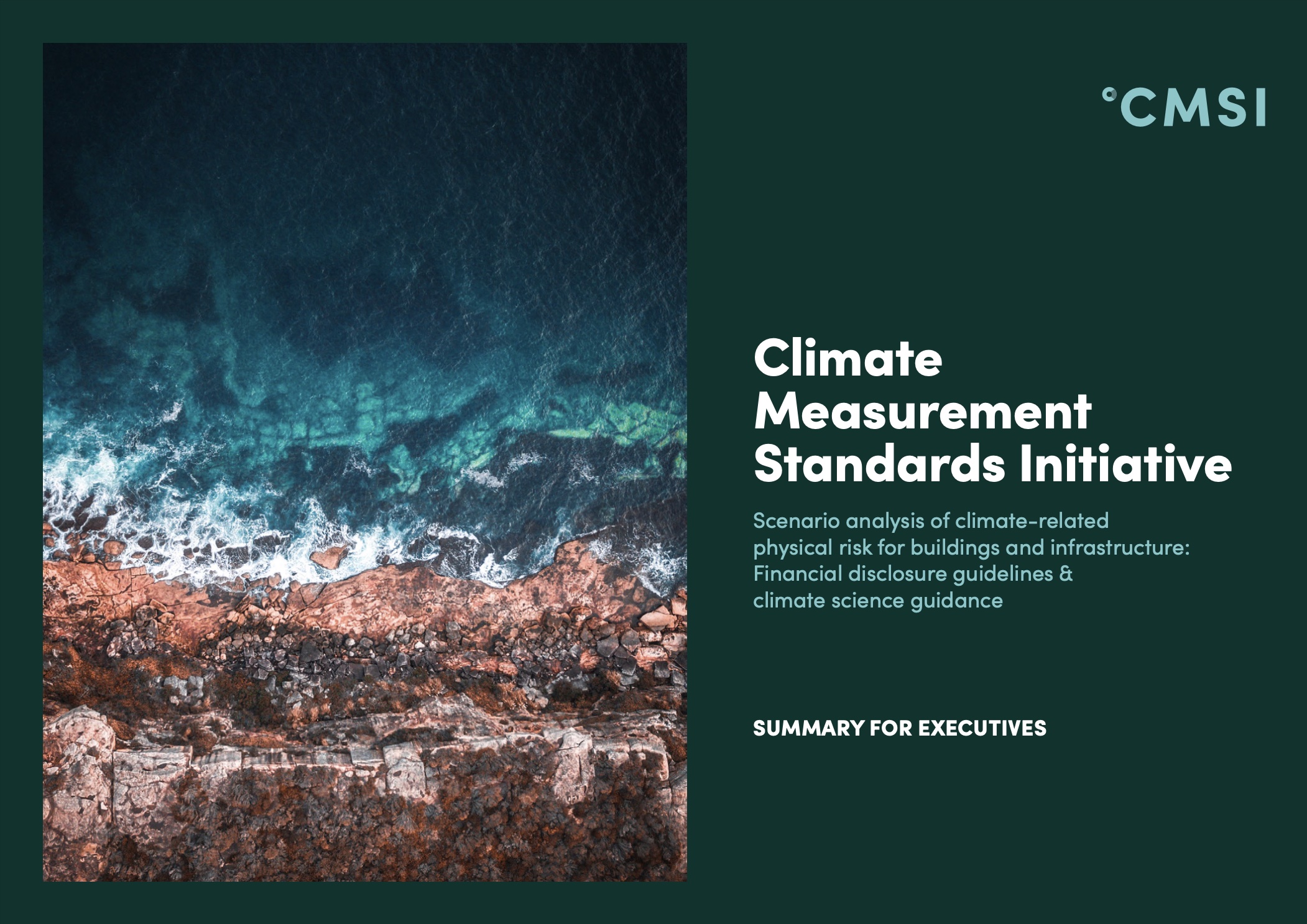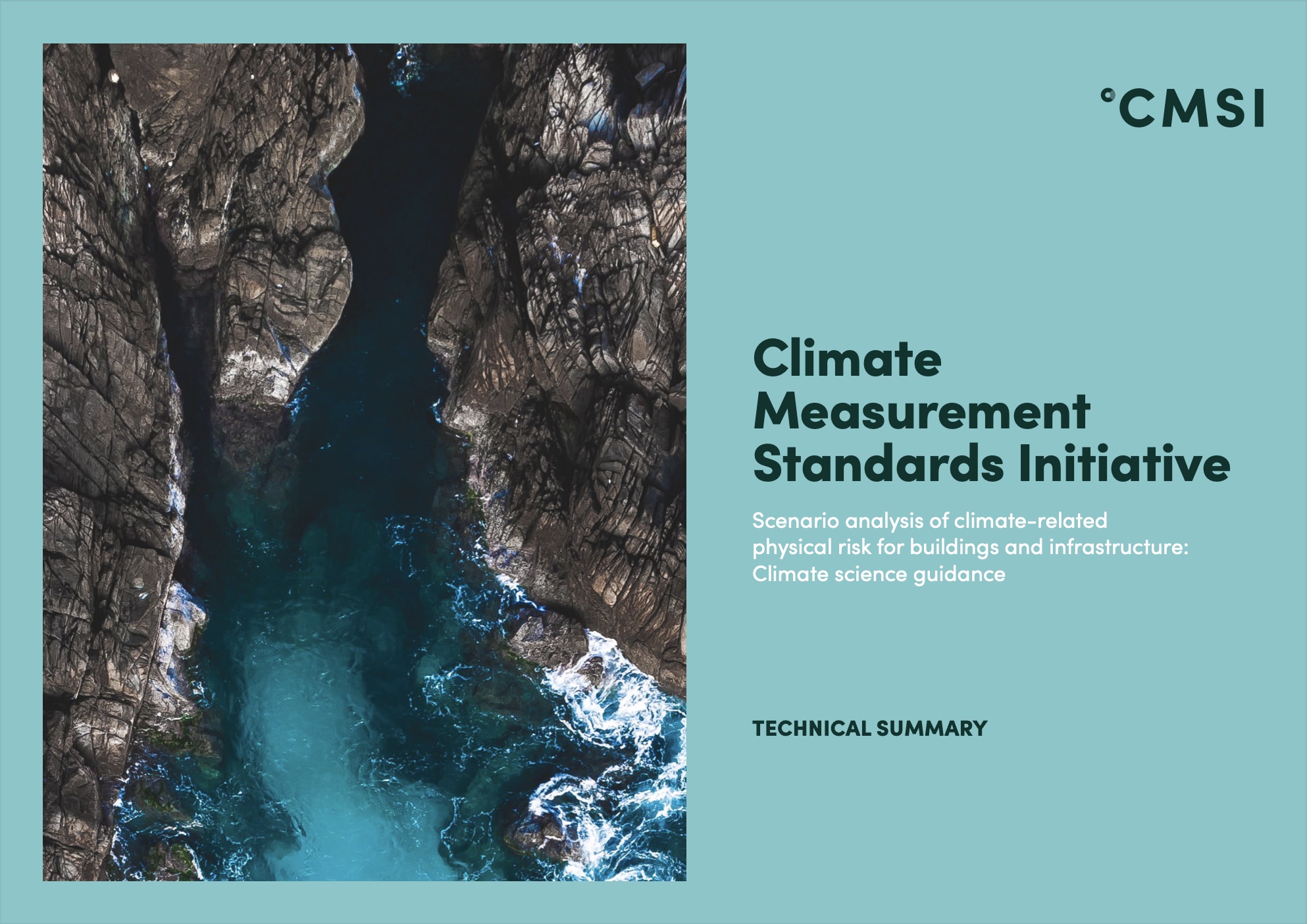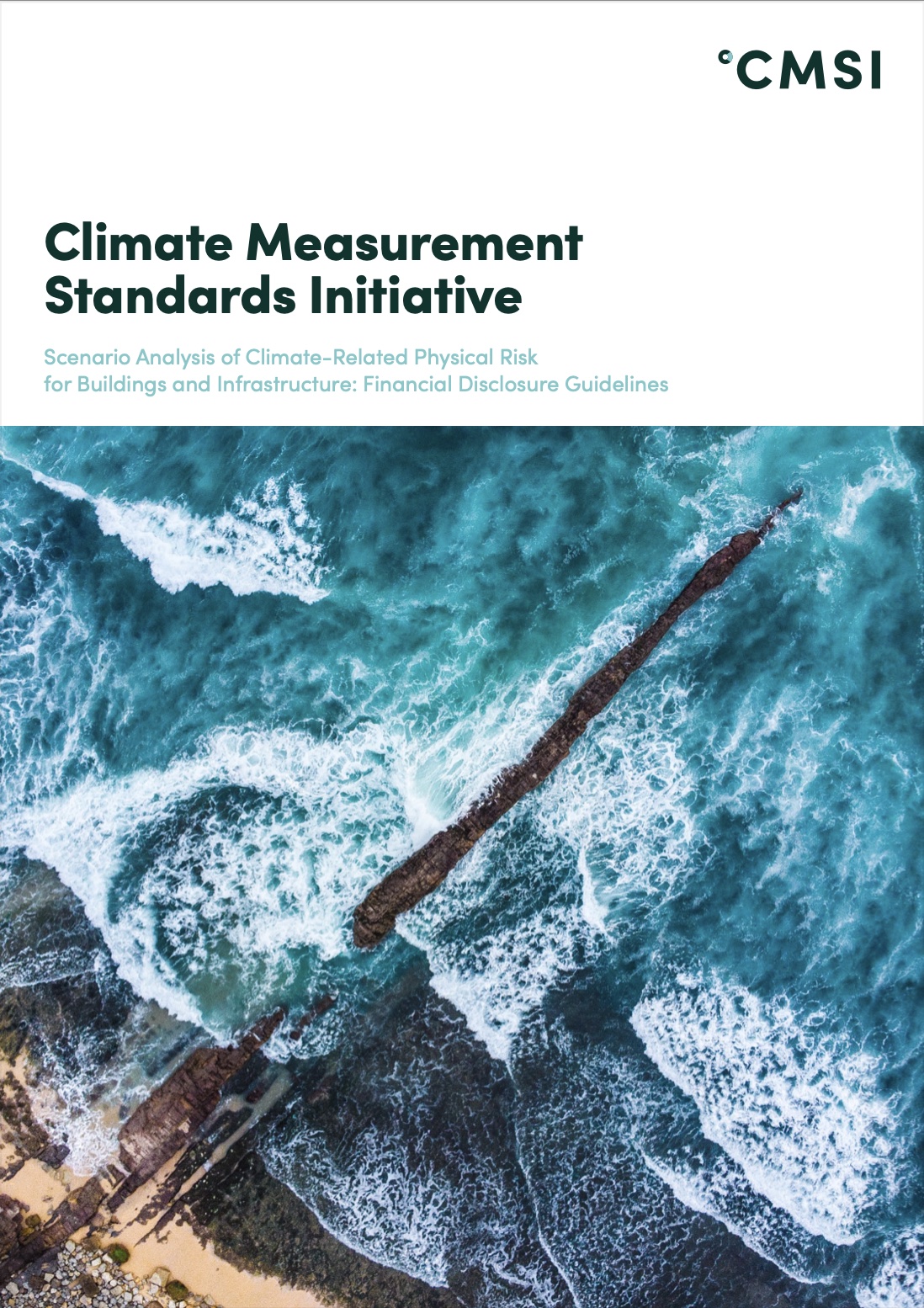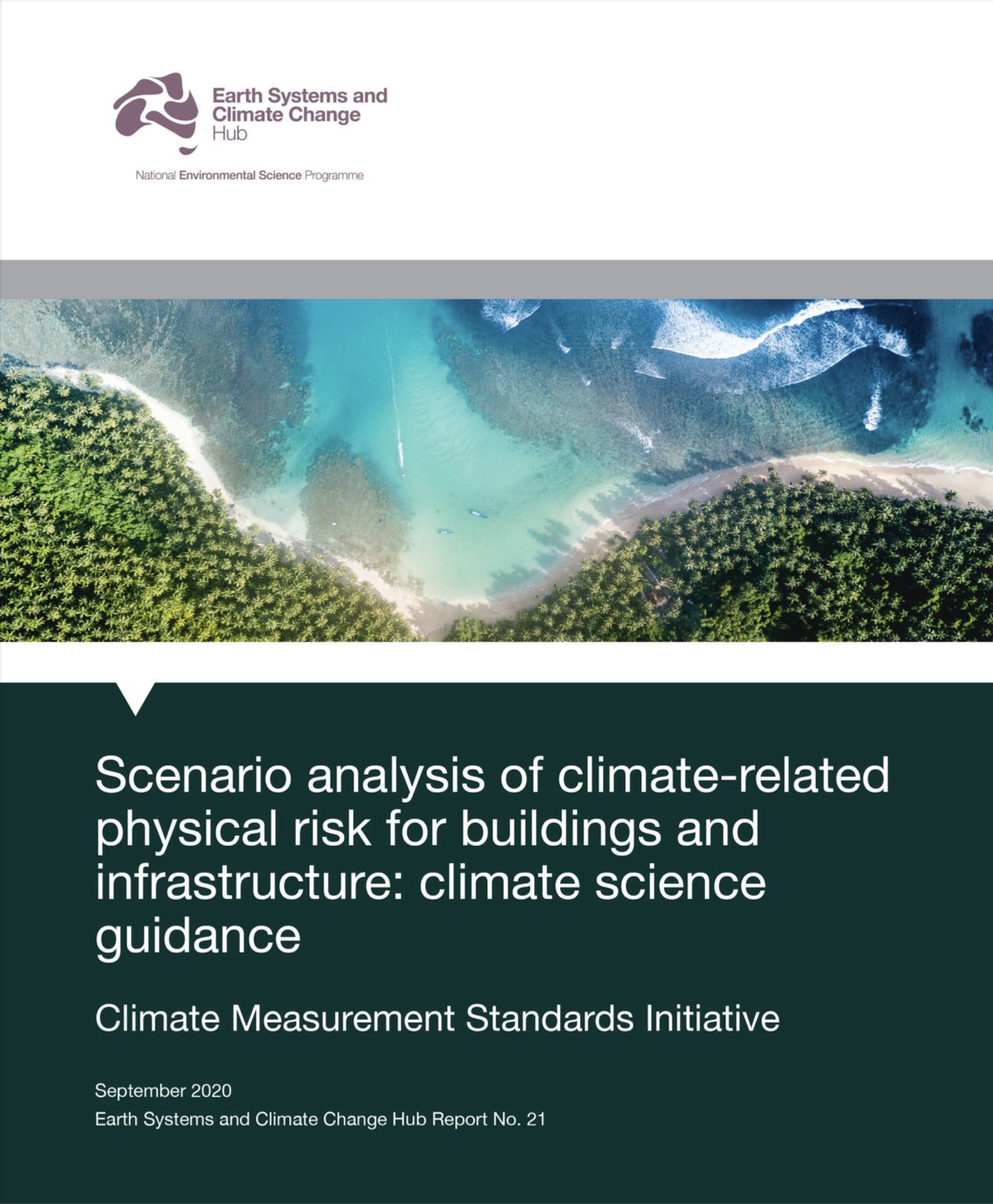Sydney, September 14th, 2020 – An Australian-first collaboration between climate scientists, insurers and the finance sector has produced new guidance for assessing the physical risks – such as tropical cyclones, bushfires and floods – of climate change to homes, buildings and critical infrastructure.
The Climate Measurement Standards Initiative (CMSI) has developed a set of open-source voluntary guidelines that will, for the first time, provide Australian banks, financial institutions and insurers with consistent scientific and technical guidance on how to assess the risk of climate-related damage to their buildings and critical infrastructure from extreme weather events.
Chris Lee, Chief Executive Officer of Climate-KIC Australia, convenor of the CMSI says: “This has been an historic collaboration between Australia’s leading industry, scientific and financial experts. The Australian financial sector needs to assess how cyclones, floods, hailstorms, fires, droughts, heatwaves and coastal inundation will likely affect their assets.
“The CMSI provides guidelines specific to Australian conditions. Consumers will have confidence in the resulting disclosures because they’ll be understandable, consistent, comparable and supported by Australia’s leading climate experts.”
Emma Herd, CEO of the Investor Group on Climate Change says: “The intensifying and compounding extreme weather events that are being fueled by climate change pose a significant risk to the value of assets in investors’ portfolios and, in turn, the sustainable returns for millions of Australians through their superannuation. These new standards will help investors understand their exposure and adjust portfolio strategies accordingly.”
The CMSI has been designed specifically to support the G20 Financial Stability Board’s Task Force on Climate-Related Financial Disclosures (TCFD) that made recommendations on disclosing the risks and opportunities associated with climate change and enable stakeholders to better understand the financial system’s exposures to climate-related risks.
Companies and organisations involved in developing the CMSI guidelines include QBE, Suncorp, IAG, RACQ, NAB, Westpac, Commonwealth Bank, HSBC Australia, Munich Re, Swiss Re, Leadenhall Capital Partners, MinterEllison, the Investor Group on Climate Change and Climate-KIC Australia.
Preeminent scientists from the CSIRO Climate Science Centre, Bureau of Meteorology, and leading universities under the auspices of the National Environmental Science Program’s Earth Systems and Climate Change (ESCC) Hub have led development of the science guidelines.
SUMMARY OF SCIENTIFIC GUIDELINES
The CMSI guidelines consider future climate change risks that are chronic and acute for the general insurance, banking and asset owner sectors for the years 2030, 2050 and 2090. Chronic risks means gradual changes to temperatures, rainfall, sea level, time in drought and days over 35°C. Acute risks include tropical cyclones, east coast lows, extreme rainfall, hail, storm surges and bushfires. The guidelines cover two scenarios: global warming below, and above, two degrees Celsius.
The science guidelines has found that under both scenarios, chronic physical risks are likely to exacerbate losses from acute physical risks. These risks will increase with climate change under both scenarios, but the increase in risk is higher for the above two degrees Celsius scenarios.
Download the Climate Science Guidelines
SUMMARY OF FINANCIAL GUIDELINES
The financial disclosure guidelines aim to increase our ability to understand and plan for climate change by improving the comparability of climate-related financial impact disclosures by banks, insurers and asset owners.
Broadly, the guidelines recommend disclosures should be made for 2030 and 2050, with consideration for shorter time frames aligned with business planning and 2090 if relevant. When material to the business, disclosures should be split up by portfolio (e.g. home loans, commercial loans, commercial insurance, personal insurance), by hazard (e.g. tropical cyclones, floods, bushfire etc.) and by geographic region. Specific accounting items and metrics (listed in the CMSI guidelines) should be disclosed, in line with existing financial reporting accounting standards. Disclosures should describe both the confidence and uncertainty in the critical assumptions made, with the scientific report providing views on the confidence in expected behaviour of physical risks under the two scenarios. Resilience can be disclosed via several factors (listed in the CMSI) and will be more closely developed over time.
Download the Financial Disclosure Guidelines
–ENDS–
For media interviews, contact Jes Hyne on 0487 152 057/Christine Heard on 0418 821 726 or christine@climatemediacentre.org.au
“The intensifying and compounding extreme weather events that are being fueled by climate change pose a significant risk to the value of assets in investors’ portfolios and, in turn, the sustainable returns for millions of Australians through their superannuation. These new standards will help investors understand their exposure and adjust portfolio strategies accordingly.”
Emma Heard
CEO, Investor Group on Climate Change
FURTHER QUOTES FROM CMSI CONTRIBUTORS:
Peter Grewal, QBE Group Chief Risk Officer: “As a business committed to fully implementing the recommendations of the TCFD, QBE is very pleased to support the CMSI and the creation of scientific and technical guidelines to assess climate-related risks to building and infrastructure assets. This is an important step that will not only strengthen the standard of reporting and disclosure within the financial services sector, but facilitate improved awareness and understanding of climate-related risks and how companies are managing them.”
Andrew White, Suncorp’s Executive Manager of Sustainability Risk: “The consistency and transparency created by the CMSI will help companies and investors to better understand climate-related financial risks into the future. In developing a common approach we can help prepare, coordinate and invest in natural hazard resilience building, targeting those Australian communities most at risk.”
Karen McWilliams, CAANZ Business Reform Leader: “Chartered Accountants Australia and New Zealand took part in developing these important financial disclosure guidelines as they will provide valuable, practical information for Australian companies to improve the clarity and consistency of their climate-related financial disclosures.”
Ramana James, IAG Executive General Manager, Safer Communities: “The CMSI is an excellent example of how the industry is working together to better understand and measure climate-related risks specific to the Australian environment. The launch of this new standard is a positive step that will provide organisations with a framework to report on climate-related risks more consistently.”
Alison Drill, Head of Property & Casualty Structured Solutions Asia, Swiss Re: “We are pleased to be part of this important initiative which sets out practical guidelines that will have a tangible impact on the way financial institutions assess and disclose climate related risk. It’s an important step on the path to Australia’s low carbon future.”
Shaun Dooley, Chief Risk Officer, NAB: “NAB is pleased to be working with other Australian financial institutions in collaboration with scientists, reporting standards professionals, service providers and other supporting parties to develop finance sector guidance on climate science for scenario analysis of climate-related physical risk for buildings and infrastructure and related disclosures. This work will help develop a consistent finance sector approach to disclosure in line with the TCFD and make it easier to understand and compare disclosures. We hope the robust scientific information provided to support the use of scenarios for climate-related risk analysis will help build increased confidence in climate analysis undertaken by the finance sector and enable informed decisions about climate-related risks and opportunities.”
Prof David Karoly, Earth Systems and Climate Change Hub, CSIRO: “The CMSI has provided our climate scientists with a unique and valuable opportunity to collaborate with experts from the financial services sector to explore and analyse the utility of the ‘best available science’ in assessing climate-related risks to Australian buildings and critical infrastructure. Framed by the TCFD recommendations, this work has been undertaken by Australian scientists, for Australian industry, but within a global context. Through the co-production process, the CMSI has enabled robust, peer-reviewed science-based evidence to inform industry risk and associated decision-making, thereby also supporting the national resilience agenda for Australia.”






